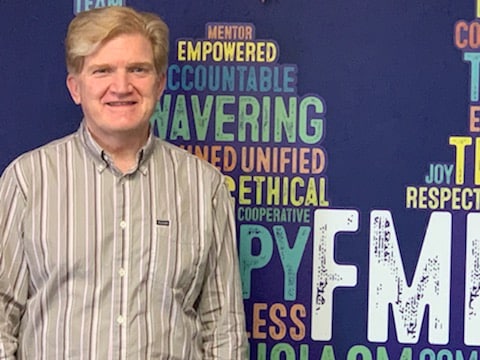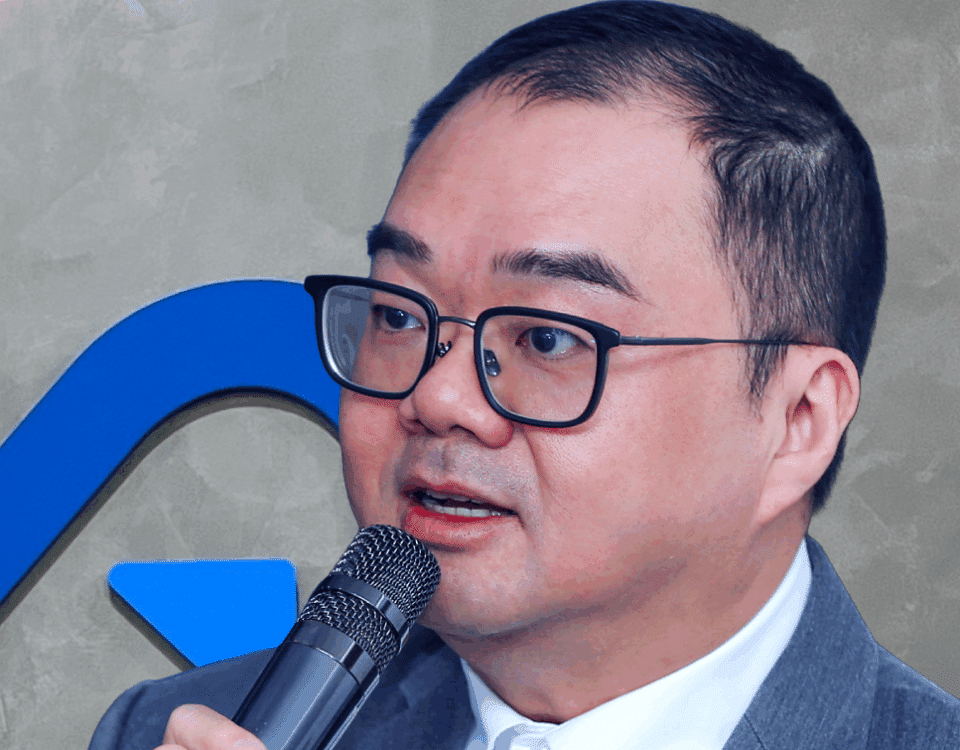Biden throws support behind Amazon workers holding milestone union vote
March 1, 2021Covid changed how we think of offices. Now companies want their space to work as hard as they do.
March 10, 2021By Verne Harnish
At 28 years old, FMI, a full-service contract manufacturing and product formulation firm in Allentown, Pa., is scaling at a clip. FMI, founded by P&G veteran Kevin Rhodes, serves makers of products such as air fresheners, laundry detergent and shampoo, many of whom are entrepreneurs. It saw 29.2% revenue growth each year from 2014 to 2020 and, with more than $25 million in annual revenue, now employs 148 people, including 28 new hires who came on board in February.
“Not coincidentally, we made a commitment to the Scaling Up methodology in late 2013,” says Rhodes. “The Rockefeller Habits and Scaling Up are a principal reason for our success, and we are poised for even faster growth this year and in the future.”
Rhodes first learned about what is now called the Scaling Up operating system when he read my book Mastering the Rockefeller Habits nearly 20 years ago. At that time, he completed the One-Page Strategic Plan for the first time. In 2019, he attended his first Scaling Up CEO Boot Camp to deepen his knowledge. The boot camp was a gift from his wife and business partner, Sheryl Rhodes. “She took me out to dinner and gave me a signed copy of Scaling Up: Rockefeller Habits 2.0,” he recalls. “I opened it and there was a note from Verne saying, ‘See you at boot camp.’” After the boot camp, Rhodes hired Scaling Up Certified Coach Greg Eisen to offer guidance on using the system.
Determined to keep the company’s growth streak going, Rhodes is getting ready to attend his third boot camp in June. Here is how he has used the Scaling Up operating system to scale the company.
Getting clear on Core Values
Working with Eisen, Rhodes and his leadership team drafted an up-to-date list of six Core Values that were in sync with where they wanted to take the company. These included, “We are relentless and thoughtful to find the solution,” and “We always do right—even when it’s hard.” The company also set a core Purpose of inspiring everyone it worked with.
To make sure the team was aligned around these values, the company created a series of half-hour videos featuring stories about each value and rolled them out over a week. FMI now shares the videos with new hires.
FMI also implemented the Topgrading methodology in its hiring process. “We are specifically looking for people who match our Core Values,” Rhodes says. For instance, to find hires who embody the value “We are the customer’s eyes”—and truly look out for the interests of the companies who put their labels on the products it makes—interviewers ask, “In your previous positions, can you give us an example or two of when you think you were the customer’s eyes?”
Setting a bold BHAG
Rhodes and his team also set an ambitious BHAG for 2035: “We will have an FMI manufactured product in every household in the world that buys prestige products by 2035.” To support the BHAG, they have set quarterly priorities to improve the business. “The one right now is to be able to ship within 24 hours of a customer’s request,” says Rhodes.
FMI keeps everyone aligned around quarterly goals through its meeting rhythms. Every employee attends a daily huddle. There are also bi-weekly, all-company meetings, which FMI records. “That’s where we update people on our quarterly priorities and all that is going on,” says Rhodes.
Embracing the core customer
Currently, Rhodes and his team have been working with Eisen to get clearer on who their core customer is, so they can target their attention more effectively. “Generally speaking, we’re going after people that have an appetite for growth and expertise in formulations, marketing or distribution channels for personal care and home care products,” Rhodes says.
To keep core customers happy, FMI’s team has been working on flowcharting the company’s processes in shipping and other areas of its operations. The goal is eliminating unnecessary steps and documenting what needs to be done, so it is easier for new hires to learn. Formalizing each process has become essential as the team has grown.
“There was a lot of informal tribal knowledge when there were a lot fewer employees,” says Rhodes. “We knew what was going on throughout the business when we were smaller. We had one shift. Now we’re a three-shift operation. There’s too much information, and none of us can have a handle on the whole thing anymore.”
Building a better banking relationship
The Scaling Up operating system has also helped FMI achieve its goals regarding Cash. When Rhodes decided it was time to switch to a bigger bank, he shared the One Page Strategic Plan with the banker he met. The bank was impressed that the company had the plan and was intentional about growth, he recalls. Result: “They tripled our credit line,” says Rhodes.
With all of the right pieces in place for growth, Rhodes wants to expand FMI’s role in serving his customers and to take on as much of their supply chain as they want to outsource. “We consider ourselves partners with our customers,” he says. “They consider us partners in their business.”
As part of that partnership, Rhodes is determined to help his customers achieve their own growth goals. “My passion is turning even more toward really helping our customers in a much broader sense than just making and filling bottles for them,” he says.
To that end, he purchased a ticket to a Scaling Up summit during the pandemic for 20 customers. The more they use the Scaling Up system, the healthier their companies will be, he reckons.
“I know it works,” says Rhodes. “Using the methodology is an absolute key to our growth and success over the last seven years.”



